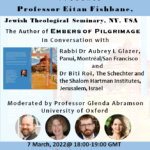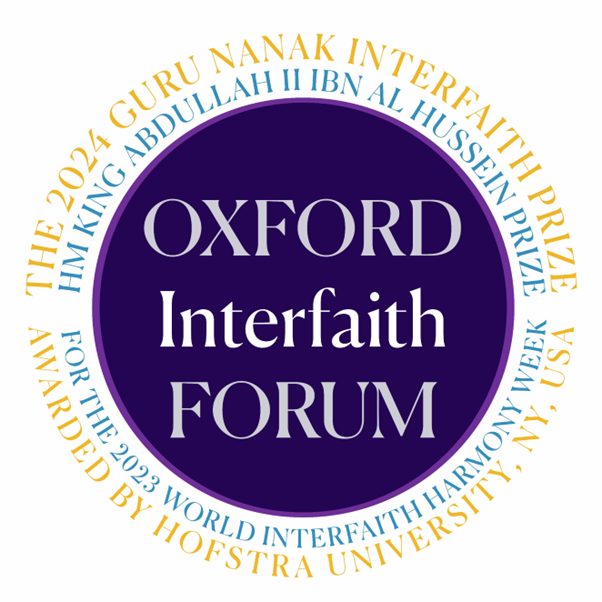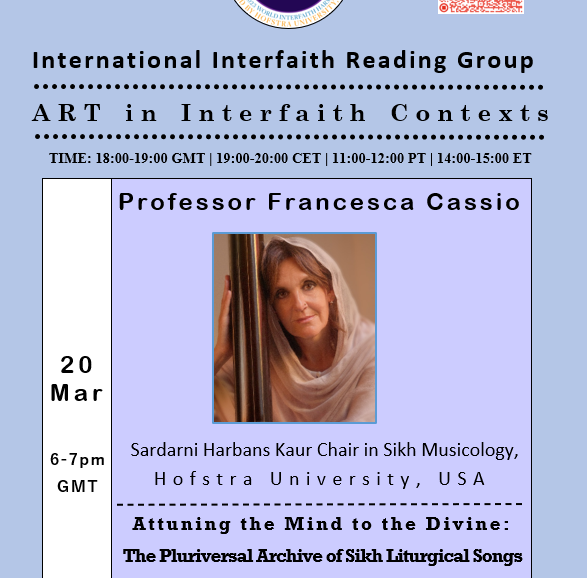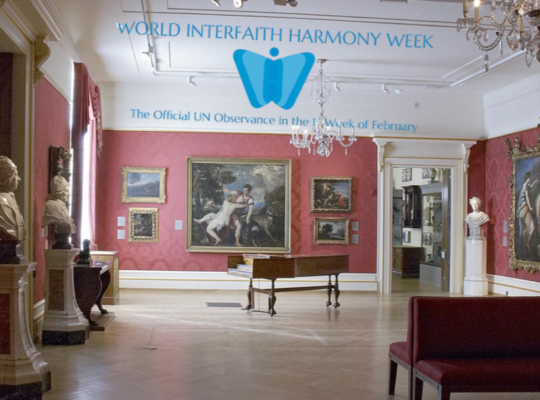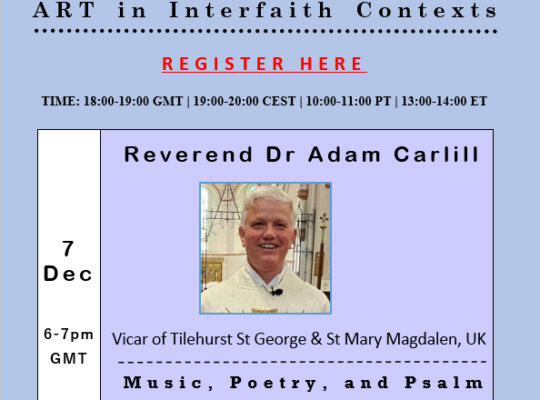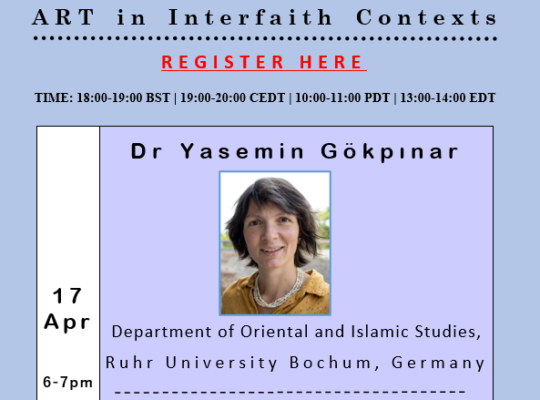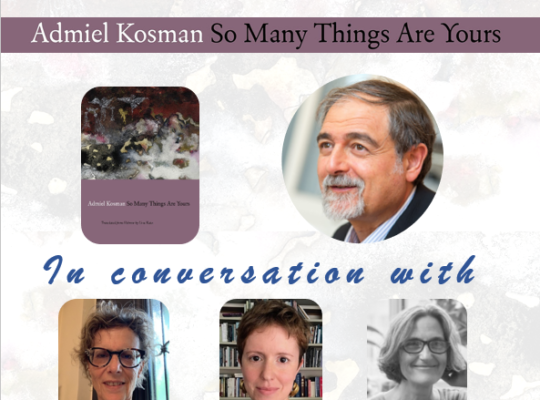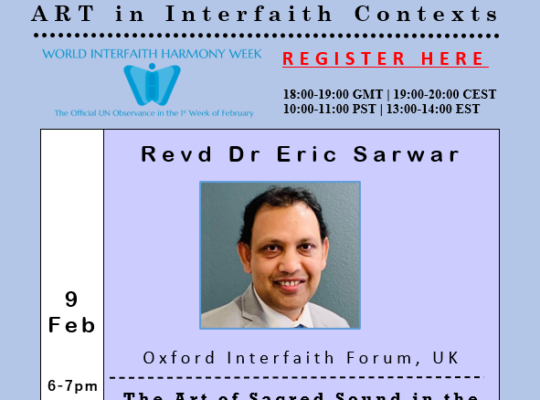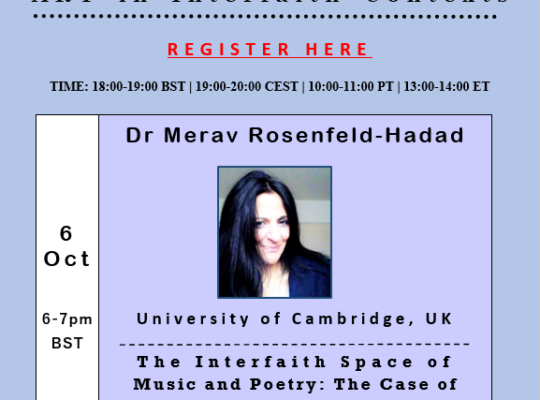20 March, 2025
We are deeply honoured to welcome Professor Francesca Cassio, The Sardarni Harbans Kaur Chair of Sikh Musicology and Professor of Music, Hofstra University, USA, to lead a session of the International Interfaith Reading Group ART in Interfaith Contexts.

Here are more details of this fascinating event.
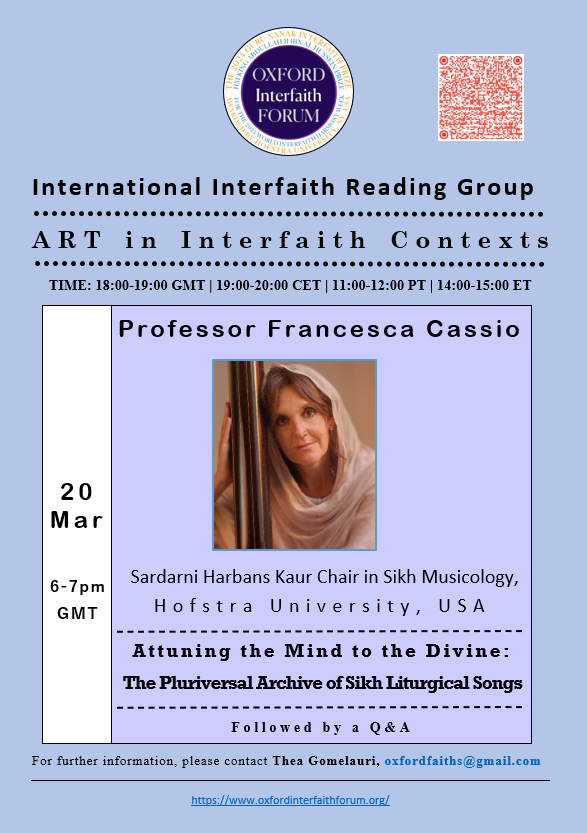
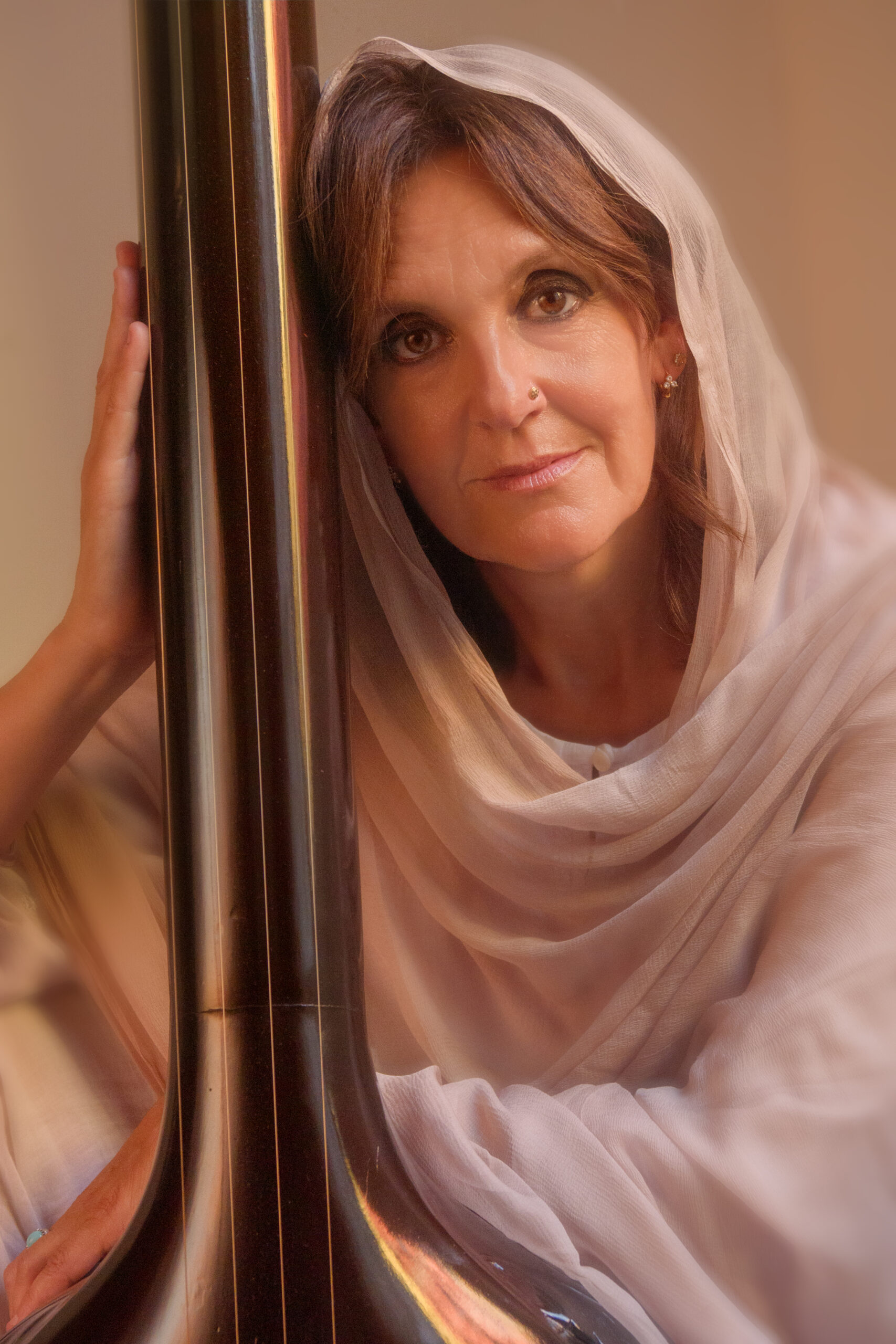
Title: Attuning the Mind to the Divine: The Pluriversal Archive of Sikh Liturgical Songs
Abstract: In heterodox traditions of pre-modern South Asia, singing and listening to sung poetry was a transversal way of engaging with spiritual knowledge. This system was incorporated and implemented in the early 16th century by the founder of the Sikh faith, Gurū Nānak (1469-1539), who established kīrtan (or the singing of liturgical hymns) as a core practice and an essential component of the Sikh listening habitus (Feld 2024; Becker 2004). According to Sikh thought, the divine Word emanating from a non-human force (the Sat Gurū) is the agent that attunes the mind of the disciple, operating a transformation from a self-willed individual (manmukh) into a Gurū-oriented person (gurmukh) (Mandair 2023). Since early Sikh history, the Word-as-Gurū was imparted in musical forms according to melodic frameworks called rāga-s that were functional to the transmission and embodiment of the Word. These rāga-based poetries constitute the main body of the Sikh canonical Scripture, the Srī Gurū Granth Sāhib. Organized according to 31 main ‘melodic’ chapters, the Scripture includes songs from six of the ten historical Sikh gurus, as well as devotional poetries attributed to Sufi and Bhakti saint-composers of the premodern era. While in the Srī Gurū Granth Sāhib, the Word has been transmitted in written form, for centuries, the musical setting of the verses has been passed on orally in heritage compositions that are credited as original from the Sikh gurūs’ times. The Sikh musical heritage is in danger of disappearing today, and preserving these compositions is critical to studying Sikhi(sm) as a pre-modern cultural system that envisioned and sustained an ecology of knowledges of the Global South (Santos 2014). Through a decolonial lens, this lecture discusses Sikh musical literature as a pluriversal archive of liturgical sung poetry of premodern South Asia, whose rāga-based renditions were not regarded as an art form but rather as an integral component of Sikh education.
Speaker: Professor Francesca Cassio, The Sardarni Harbans Kaur Chair of Sikh Musicology and Professor of Music, Hofstra University, USA.
Speaker’s Biography: Dr Francesca Cassio is Professor of Music and the Chair of the Music Department at Hofstra University, USA. Since 2011, Dr. Cassio serves as the Sardarni Harbans Kaur Chair in Sikh Musicology, the first academic position in the United States dedicated to the study of the Sikh musical heritage. Ph.D. in Ethnomusicology from the University of Rome, in affiliation with the Benares Hindu University, Dr. Cassio has conducted extensive ethnographic research in India, investigating premodern genres of court and temple music, with a focus on the Sikh musical heritage. Her scholarship engages in intersectional research on music, religion, and gender ideologies, with original works that investigate female voices in South Asian music. Dr. Cassio’s current projects cover decoloniality and the Sikh diaspora in Southern Europe. She authored a book on the medieval vocal tradition (dhrupad) of North India and has published several essays in edited volumes and academic journals (in English, Italian, and French). She is currently working on a monograph on Sikh Musicology, and a co-edited volume with Sikh Studies scholar Balbinder Singh Bhogal on “Gurū Nānak’s Pluriversal Vision. Rediscovering an Ecology of Knowledges and Voices in South Asia”. Before joining Hofstra, Dr Cassio was a lecturer of Anthropology of Music at the Conservatory of Adria, Ethnomusicology at the University of Trento, and Hindustani music at the Conservatory of Vicenza, and was Visiting Professor at Viswa Bharati University (Shantiniketan). In 2022, she received the Distinguished Alumni Award from the Indian Council for Cultural Relations (ICCR). Dr Cassio is an accomplished singer of the Dagar Bānī dhrupad and Gurbānī (Sikh) Kīrtan, and has lectured and performed in the USA, Canada, Europe, India, and Bangladesh.
Chair: Dr Elizabeth Mackintosh, Fellow of the Oxford Interfaith Forum.
Date: 20 March, 2025
Time: 18:00-19:00 GMT | 19:00-20:00 CEST | 11:00-12:00 PT | 14:00-15:00 ET
Venue: Online
If you would like to join the ART in Interfaith Contexts Reading Group, please sign up here.
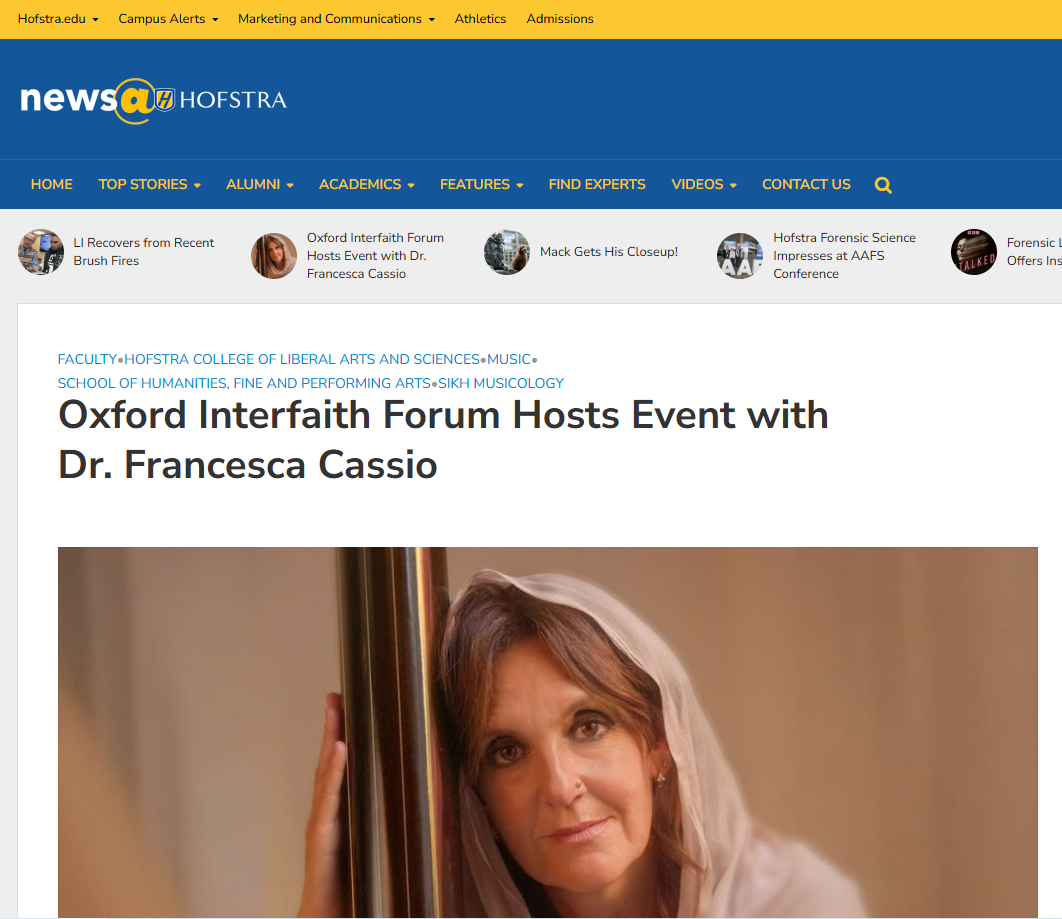
Related Sessions
- Attuning the Mind to the Divine: The Pluriversal Archive of Sikh Liturgical Songs
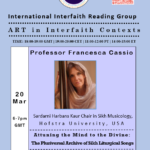
- Sacred Art ✍ Sixteen Scripts, Thirteen Scribes & Five Hours at Ashmolean Museum
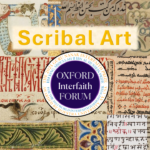
- ✍️ Scribal Art: Linguistic and Cultural Diversity
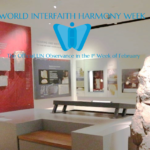
- Sacred Sounds 🎶 Break Barriers and Build Bridges
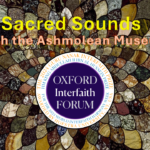
- 🎶 Sacred Sounds: Linguistic and Cultural Diversity
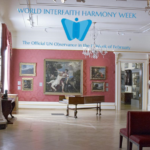
- Poetry Book Launch: So Many Things Are Yours, by Admiel Kosman, trans. Lisa Katz
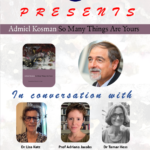
- Sacred Signs: How Jewish, Christian, and Muslim Visual Symbols Draw from the Same Well
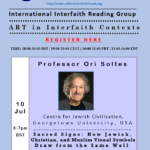
- The Tao of Mary: Images of the Virgin in the Church of the East
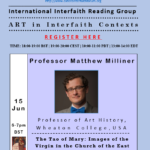
- Greek Music Theory in Muslim Thought: Al-Fārābī’s Great Book on Music
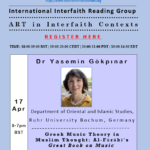
- By the Rivers of Babylon?! The Shared Melodies of Jewish and Christian Early-Modern Cultures
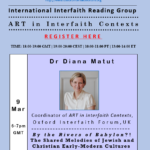
- The Art of Sacred Sound in the Muslim Context: Psalms and Islam
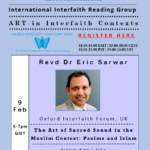
- Holman Hunt’s ‘The Light of the World’: Imperialist Icon or Universal Symbol?
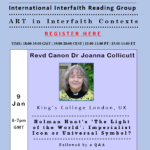
- Music, Poetry, and Psalm 131 in Christian Liturgy
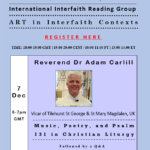
- Judaism and Islam: Shared Music and Prayer
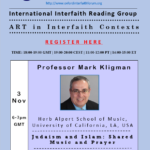
- The Interfaith Space of Music and Poetry: The Case of the Babylonian Jews’ Shbaḥoth
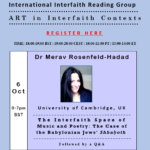
- Book Launch: Embers of Pilgrimage
